Easy Matching worksheets activities for Ages 4-7
7 filtered results
-
From - To
Discover our engaging Easy Matching Worksheets designed specifically for children aged 4-7! These fun and educational activities are perfect for enhancing logical thinking and improving memory skills in young learners. Each worksheet features vibrant illustrations and captivating themes, making learning both enjoyable and effective. Kids will love sorting, matching, and connecting pictures with words, all while honing their visual recognition abilities. Ideal for home practice or classroom use, our easy-to-follow worksheets are a fantastic resource for early childhood education. Encourage your child's intellectual growth and boost their confidence with our creative matching activities today! Dive into the world of learning right now!
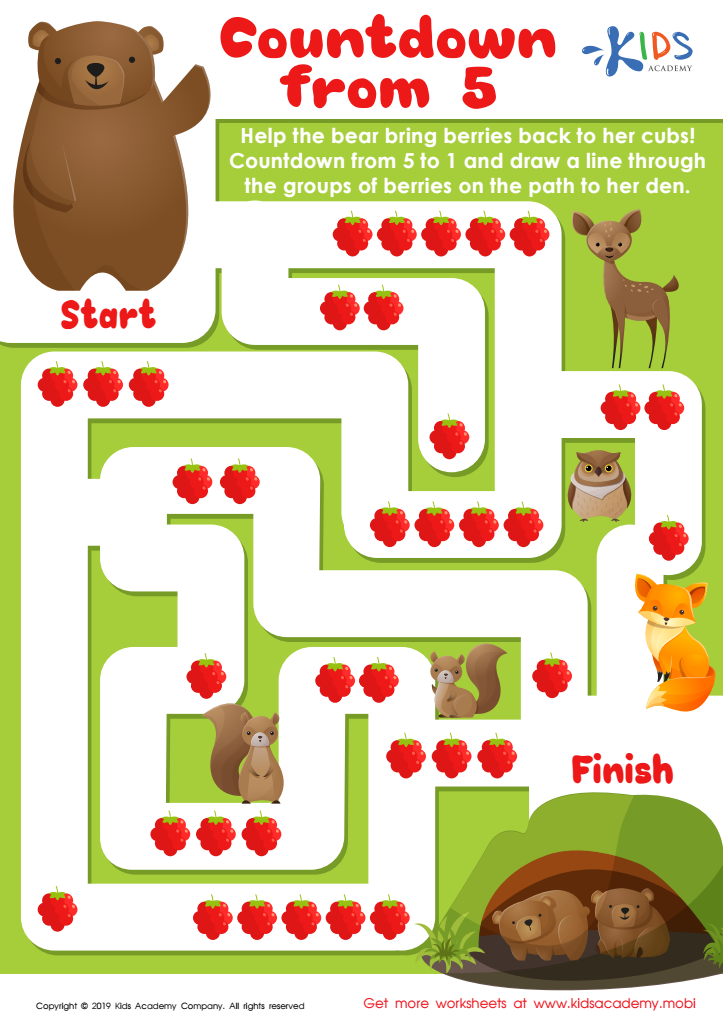

Countdown from 5 Worksheet
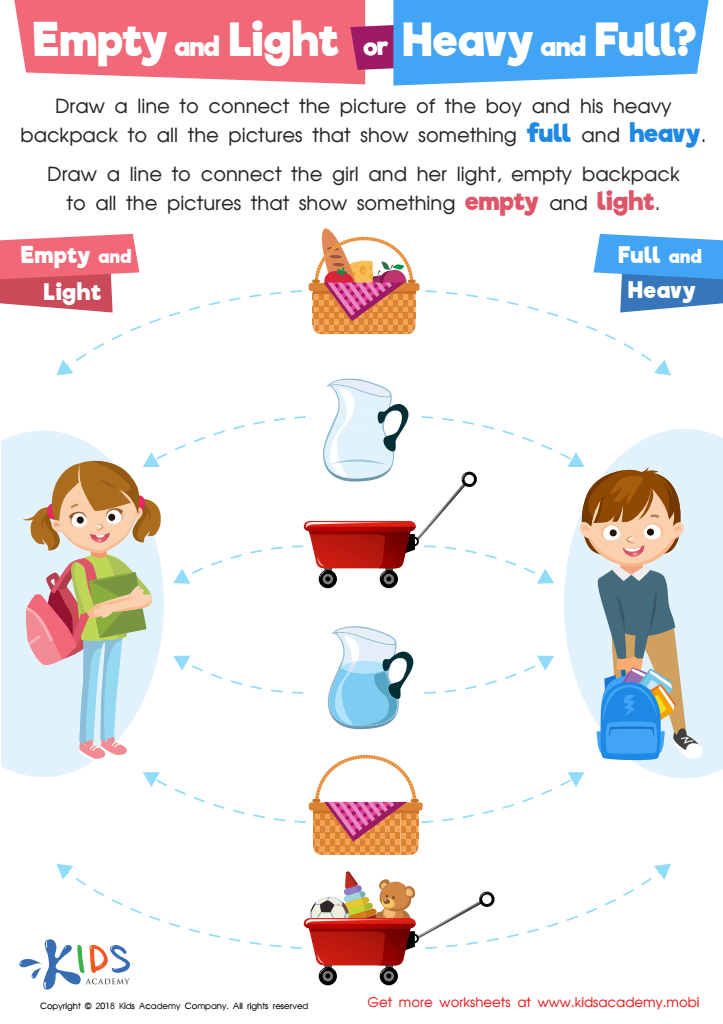

Empty and Light or Heavy and Full? Worksheet
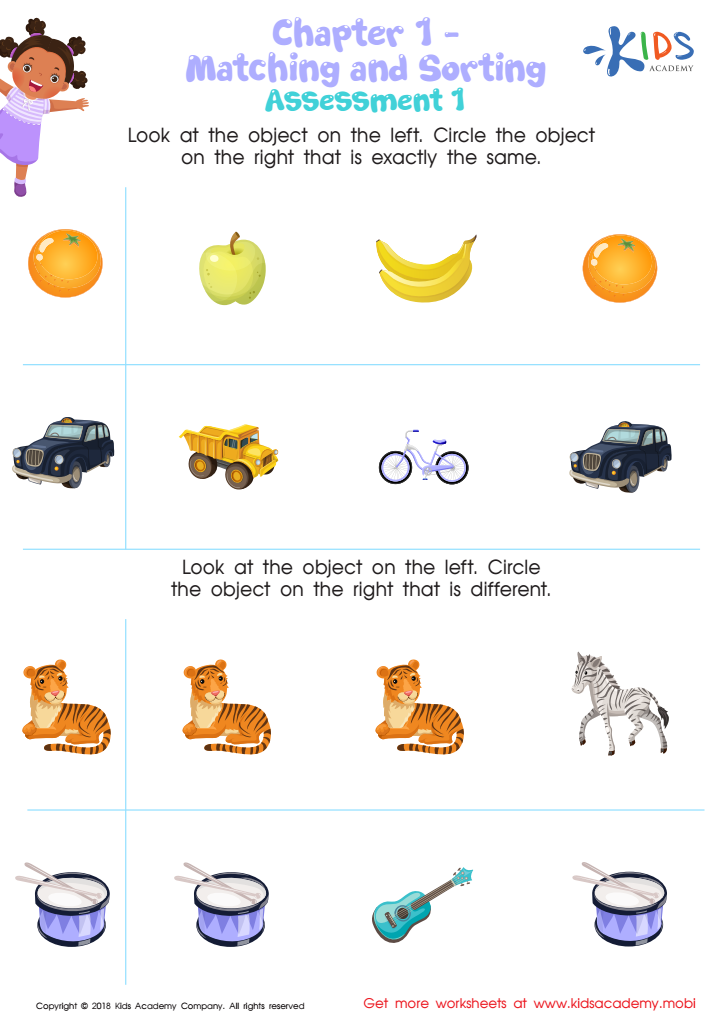

Matching and Sorting for Preschool: Assessment 1 Worksheet
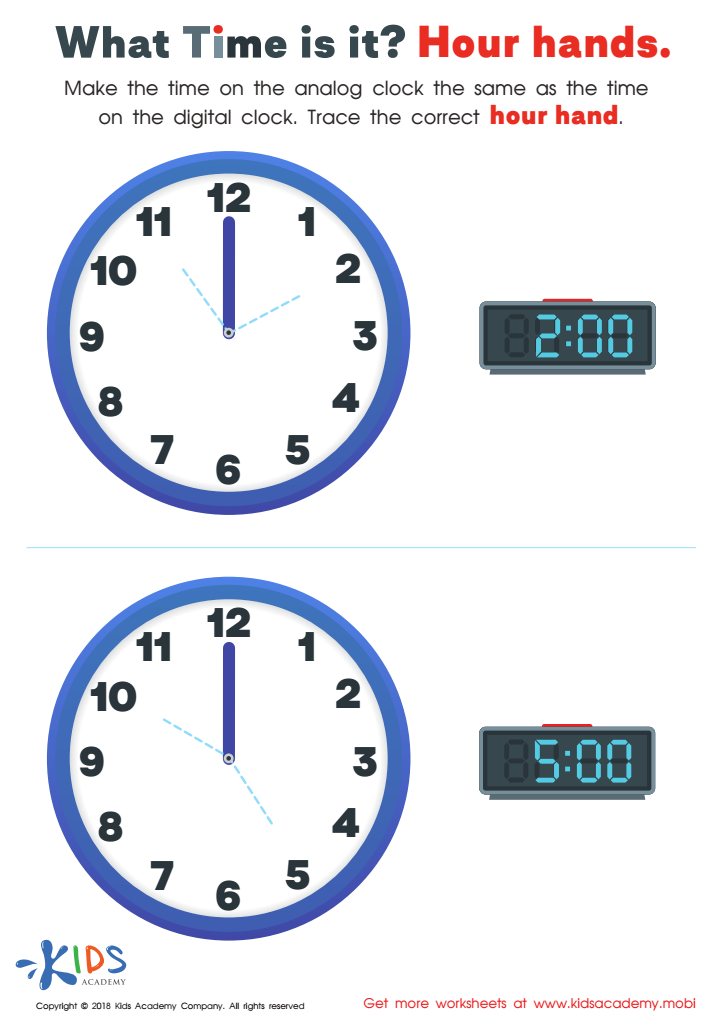

What Time Is it? Hour Hands Worksheet


Colorful Arrays Bingo Worksheet
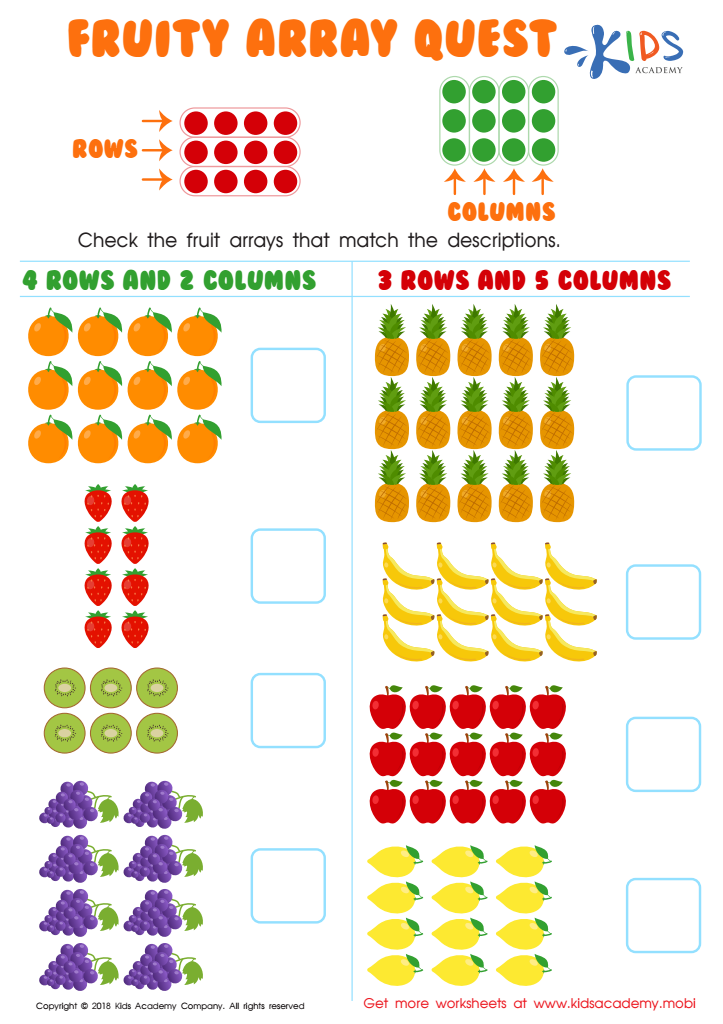

Fruity Array Quest Worksheet
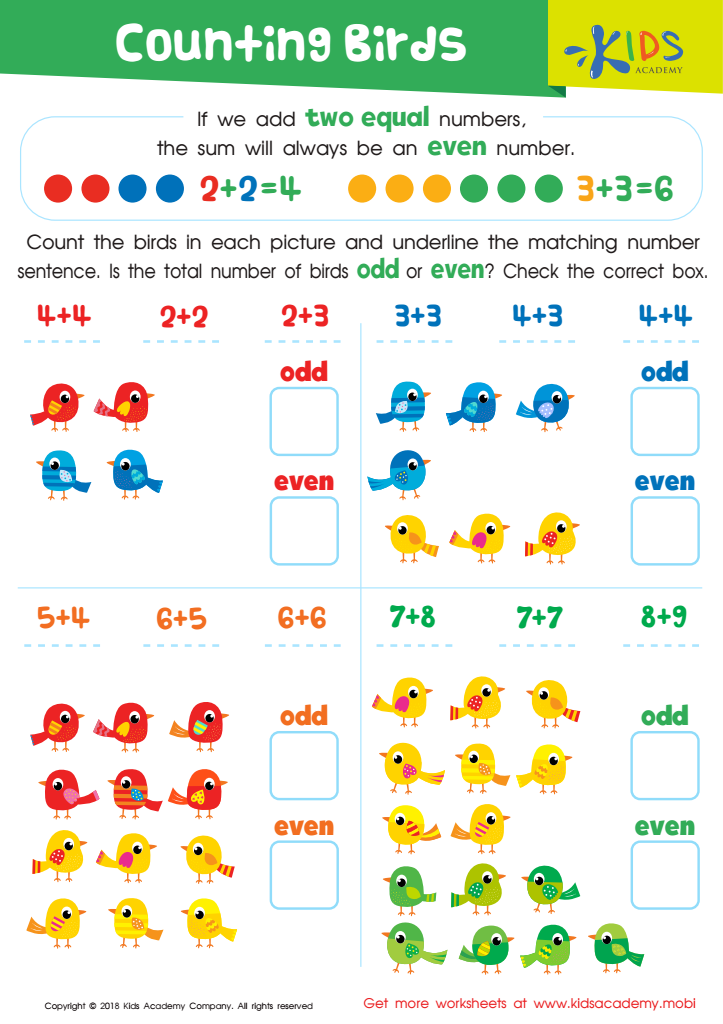

Counting Birds Worksheet
Easy matching activities are fundamental for children's cognitive and social development, especially for ages 4-7. During this critical stage, children's brains are highly receptive to learning new concepts and strengthening existing knowledge. Matching games, which often include visuals and tangible items, enhance their ability to recognize patterns, categorize information, and develop memory skills.
Engaging in these activities is not only wholesome fun but also fosters crucial skills such as focus, concentration, and problem-solving. As children match items, they practice essential cognitive skills that lay the foundation for future learning, such as language development and math readiness. Furthermore, easy matching games can often be played in pairs or groups, promoting social interaction, cooperation, and turn-taking, which are vital for emotional growth and understanding social cues.
For parents and teachers, incorporating matching activities into daily routines can help track a child's developmental milestones while providing a pain-free way to introduce learning. Finding creatively focused matching activities makes learning enjoyable, effectively bridging education and play. When parents or educators demonstrate enthusiasm towards these activities, they inspire children to develop a lifelong love for learning, preparing them for more complex challenges ahead. In summary, easy matching activities are beneficial tools in fostering well-rounded, engaged learners.
 Assign to My Students
Assign to My Students















